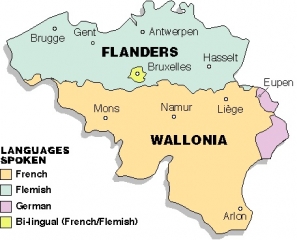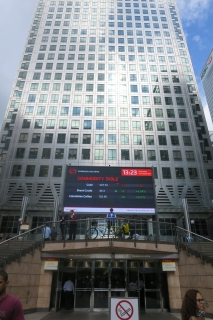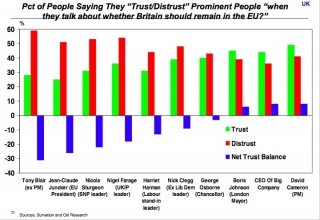Beyond the Bike
A Journey to the Heart of the EU from London…
Should we STAY or should we GO?
After arriving in Dunkirk from the UK, we quickly found ourselves crossing the French border into Belgium, entering the country from which the EU policies are formulated. Ironic perhaps that the country at the heart of the European UNION is itself clearly divided, holding the world record for a being without a government, previously held by war-torn Iraq….


Divided Belgium - it went 514 days without a government in 2010/11; My Journey started in Canary Wharf on September 3rd
Cycling through a country gives you a sense of its history as well as geography. Part of the reason for this journey is to try and bring economics to life and highlight crucial links to the other humanities, a point arguably lost in the years running up to the 2007-2009 crisis, as I highlighted in my first blog - lessons from the financial crisis.
Belgium itself is a relatively minor economy in the EU (its GDP is a mere 15% of Germany's, for example) but it is the dominant force in the Benelux region. Its neutrality, geography and bilingualism made it a natural home, if there is one, for EU to be based. In many ways the history of Europe can be told through its battles; from Caesar’s Gallic Wars to the Spanish and Austrian Successions in the 18th centuries. More recently, memorials of the great conflicts of the last two centuries are ubiquitous from Waterloo 200 years ago to Ypres in 1914 and Bulge in 1944.
Events in Europe have dominated headlines over the summer in the UK, led by Grexit (see second recent blog) and the migration crisis, both in the Med and (under) the channel. But the more important issue for UK economy and one that will rumble on during this economic cycle is whether Britain remains in the EU. Prime Minister David Cameron has promised a in/out referendum by the end of 2017.
.
David Cameron has some tricky balancing to do
My first job as a city economist back in 2002 at Schroders was to brief management on the economic implication of the UK joining the euro. The idea of the UK leaving the EU then was somewhat far-fetched. How things have changed!
So should Britain leave the EU? As always, the answer is not straight forward and depends on the terms that Cameron manages to negotiate. I’m not planning on going through all the arguments here - they are summarised well in this BBC article and some of the references below.
The main economic argument for leaving is saving money in membership fees - around £11.3bn in 2013 net of the rebate, according to the BBC. This is the equivalent to what the government spends on transport. The other arguments are hard to quantify but a trip to Brussels with my students in July highlighted the level of beaurocracy and the excessive cost of the administration (over $7bn!) - the parliament and its surrounding circus was in Strasbourg; it is surely a waste of money to have two parliaments?

What the EU budget is spend on Source: BBC
For me, the impact on trade and FDI into the UK are probably the most important arguments and it seems that it is simply not worth risking the negative impact on these two factors by deciding to leave. The EU represents around 50% of the UK’s trade and many multi-nationals have invested in the UK as a gateway to this market. Britain’s largely foreign owned Car and Financial industries are the two most obvious examples where millions of medium-term jobs would be at risk. For a more technical economic analysis of this, see the excellent blog from academics at the LSE, who find that ‘reduced integration with EU countries is likely to cost the UK economy far more than is gained from lower contributions to the EU budget’.

Source: Citi Economic Research
Either way, the UK's decision will be in the hands of the voters. As the chart above shows, if Cameron can negotiate what he wants, it should be a straightforward ’stay in EU’ decision. Politically, who leads the anti-EU campaign will be critical. Cameron will be laughing if it is NigelFarage, untrusted by most voters (see chart below). However, if Boris decides to use this as a gamble to becoming the next PM, we can expect a bit of a bloodbath in the corridors of Westminster.
Europe today may not be much of a growth story but the EU represents nearly one quarter of the world’s wealth. The recent capitulation of Chinese markets highlights that emerging markets are perhaps not such a one-way bet. It will be fascinating to get to China next year and see the economy first hand!
In the meantime, we fly to Africa this week and will soon be exploring a couple of Belgium’s former colonies - Rwanda and the DRC. There, we’ll be investigating whether the EU foreign aid is helping to make up for some of the damage caused King Leopold’s ghosts.

```Source: Citi Economic Research
When you subscribe to the blog, we will send you an e-mail when there are new updates on the site so you wouldn't miss them.


